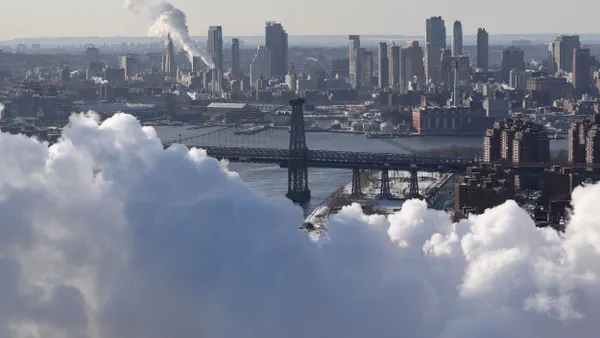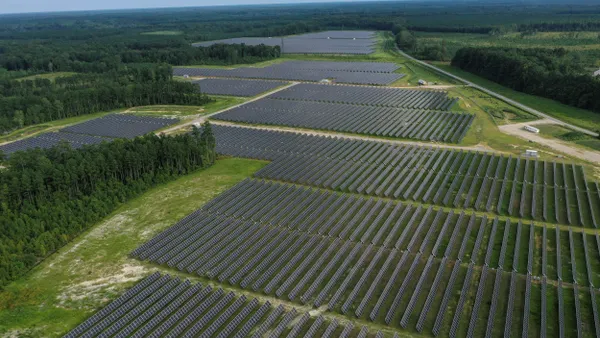Dive Brief:
- China filed a formal request with the World Trade Organization to consult with the United States over compensation under the agency's Safeguard Agreement, following a decision by President Trump to levy tariffs on imported solar equipment.
- In its request, China said the U.S. violated certain provisions under WTO rules, and followed the example laid out by South Korea and Taiwan, who filed similar requests earlier this year. These filings fulfill previous indications by countries that they would challenge the tariffs, which were implemented using a rare global safeguard measure under the Trade Act of 1974.
- Meanwhile, a new report from the Solar Foundation noted the U.S. solar industry lost 4% of total jobs last year, reflecting a cooling market in some states and uncertainty over the trade case. However, job growth is expected to resume later this year.
Dive Insight:
The latest filings from these countries could bring a full trade war down the road, Reuters noted, as more countries line up to challenge Trump's tariffs on imported crystalline silicon photovoltaic cells and modules. These actions also could lead to a settlement with the U.S. — something the U.S. Trade Representative Robert Lighthizer said the administration would be open to.
However, Reuters noted that no country has negotiated a settlement under WTO safeguard rules thus far, and it's unclear whether one would speed up the dispute.
At the end of January, the Trump administration issued 30% tariffs on imported solar equipment that would gradually decline in 5% increments over a four-year span. The decision came after a months-long proceeding for much of 2017 to determine whether cheap imports caused harm to a pair of U.S.-based domestic manufacturers.
However, that trade case was nearly universally condemned from major solar trade group the Solar Energy Industries Association (SEIA) and some of Trump's biggest allies, such as the Heritage Foundation and the American Legislative Exchange Council (ALEC).
SEIA said the tariffs could cost 23,000 jobs the first year, and hurt as much as 9% of utility-scale solar installations — the biggest solar market in the nation. The uncertainty within the solar market already stalled some projects as developers awaited the consequences from the tariff decision and the recent corporate tax overhaul.
The overhaul includes an offset provision for 80% of BEAT payments that wind and solar interests say could still harm financing options for projects. Even so, the power sector still seems intent on moving forward with investment plans. Duke Energy, also one of the biggest opponents of the solar trade case, said that while they anticipate higher costs for solar projects, they still plan to keep investing.













